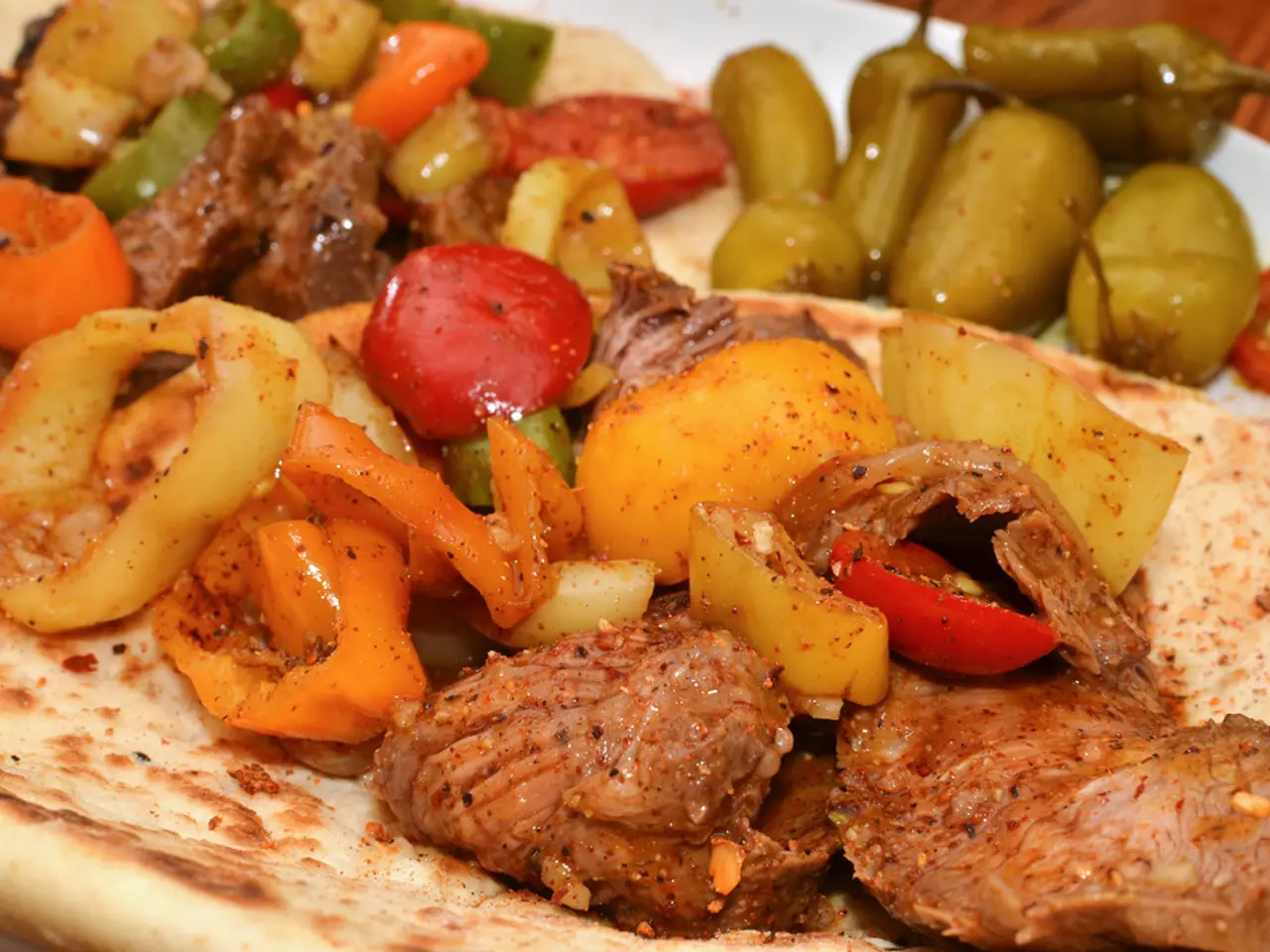Indulge in 10 Delicious Moroccan Specialties During Your Next Vacation
Morocco, a North African country known for its vibrant culture and bold cuisine, offers a gastronomic adventure for those seeking to explore its rich culinary heritage. From bustling city markets to picturesque coastal towns, the country's diverse regions and traditions are reflected in its food, offering a delightful array of flavors and textures.
During your Morocco holidays, you'll have the opportunity to sample lesser-known dishes that go beyond the popular staples like couscous and chicken tagine. One such dish is Harira, a hearty soup made with meat, lentils, chickpeas, tomatoes, vermicelli noodles, herbs, and spices, traditionally eaten to break the fast during Ramadan. For a lighter version, try Harira Beldi, a meat-free option enjoyed year-round.
Another must-try is Tangia, a traditional Marrakech dish made with chunks of beef or lamb, marinated with lemon, garlic, and spices, slow-cooked in a clay pot over hot ashes. Its lemony, tender flavor is distinct from more common tagines.
In coastal towns like Essaouira and Safi, Tanjia Dial Hout, a fish or seafood stew cooked with preserved lemon, garlic, saffron, fresh herbs, is a popular choice. For a sweet and sour treat, Seffa Medfouna, made with sweetened couscous, tender chicken or lamb, powdered sugar, cinnamon, and sometimes almonds, is a favorite at weddings and events.
Msemen, a flaky, chewy Moroccan flatbread often eaten at breakfast with honey or jam, requires a unique folding and layering technique. Baghrir, known as "thousand-hole" pancakes, are soft, spongy semolina pancakes typically served with butter and syrup. Both are worth trying for a taste of Morocco's authentic breakfast fare.
Maakouda, a popular Moroccan street food, is made with mashed potatoes, garlic, parsley, spices, shaped into patties, and fried. It's a perfect snack to enjoy with sandwiches or alongside salads.
Loubia, a more flavorful version of baked beans, is made with garlic, paprika, cumin, olive oil, tomato puree, and white beans. Zaalouk, a Moroccan side dish or appetizer made with roasted eggplant, tomatoes, garlic, olive oil, cumin, and paprika, is another delicious option to try.
For those who prefer seafood, Hout Quari, marinated sardines with chermoula, fried until golden and crispy, is a common street food.
Participating in cooking classes or food tours in cities like Casablanca can give you hands-on experience with these authentic recipes and other traditional foods, providing a deeper insight into Morocco’s culinary heritage. So, why not embark on a culinary journey during your next Morocco holidays and discover the unforgettable flavors that the country has to offer?
[1] https://www.thespruceeats.com/moroccan-food-3227707 [2] https://www.tripadvisor.com/Travel-g187147-s169/Morocco:Cooking_Classes.html [3] https://www.thespruceeats.com/tangia-marrakech-morocco-3227709 [4] https://www.thespruceeats.com/lamb-tagine-with-prunes-and-almonds-3227710
- During your Morocco holidays, you can take cooking classes or join food tours in cities like Casablanca to gain hands-on experience with the country's global-cuisines, such as Harira, Tangia, Tanjia Dial Hout, Seffa Medfouna, Msemen, Baghrir, Maakouda, Loubia, Zaalouk, and Hout Quari.
- A food-and-drink adventure in Morocco will offer you the opportunity to sample these traditional recipes, unveiling the rich culinary heritage of regions across this North African country, from bustling cities to coastal towns like Essaouira and Safi.
- Whether you're exploring Moroccan street foods like Maakouda or delving into flavorful dishes like Seffa Medfouna at weddings and events, or trying regional specialties like Tangia in Marrakech, remember that the country's diverse gastronomy is an essential part of its global-cuisines and bold lifestyle.




